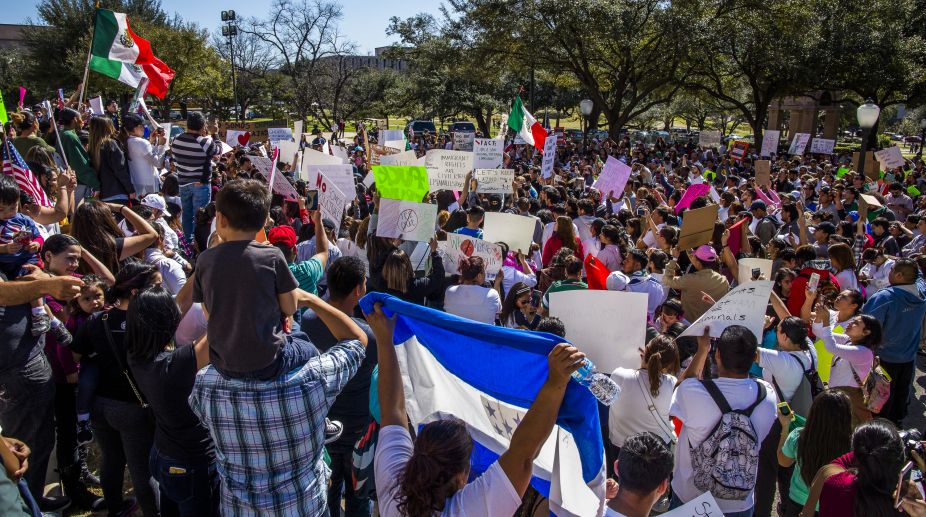Nearly 200 people demonstrated in front of the White House as part of the "Day without Immigrants" movement against the immigration policies of US President Donald Trump, a media report said.
In an effort to show Trump that the work of immigrants is necessary for the "prosperity" of the country, Mexicans, Salvadorans, Hondurans and Colombians, among others, protested on Thursday, Efe news reported.
Advertisement
They took off their work uniforms and took on the role of activists.
Many immigrants left their jobs and refused to buy anything or take public transport in the US capital and in other major cities across the country to dissociate themselves from the US economy and demonstrate their importance.
Dominican national Maria Sorial chose not to show up to work in solidarity with the movement, as did her colleagues, who are mostly Latinas.
"We (the Latinos) do the work that Americans don't want to do. We clean the offices, the hotels and the houses, we take care of their children, we work in the construction sites and we feed them food. Let's hope that …will help the President realize how important we are to the country's economy," Sorial said.
Demonstrators culminated their protest in front of the White House after marching for more than 4.5 km from Mount Pleasant, the city's most important Hispanic neighbourhood.
Children who had taken the day off from school, small business owners and catering workers were among those carrying protest placards and the flags of their home countries on the march to the White House.
"It's hard work, and we do it for minimum pay, so I don't think Americans want to do it," Norma Escobar, an undocumented Guatemalan woman who lost her job "without any explanation" at a restaurant on Monday, said.
"I especially ask the President not to deport us, because we are afraid to go back to our countries. There is a lot of violence there. They have killed my brother," she said through tears.
Norma Salvador, a Salvadoran woman who has been working in cleaning and hospitality since arriving in Washington more than a decade ago and whose two siblings have been deported, said she had faith that the power of protest would help to bring recognition to the work of immigrants.











